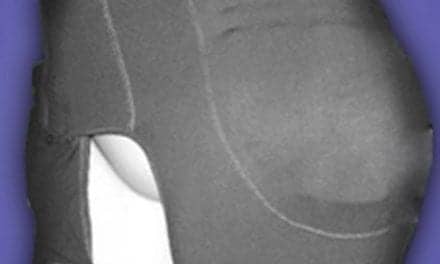Delaying surgery for 12 months or more after a rotator cuff tear diagnosis is associated with almost twice the odds of needing a subsequent revision surgery compared to having surgery between 6 weeks and 1 year after diagnosis, according to researchers from Hospital for Special Surgery.
Their retrospective study of records from thousands of patients across the United States was published recently in Orthopedics.
The revision rate for patients with rotator cuff tears who delayed surgery for 12 months or more was 15.2%, versus 9.9% for those who had surgery within 6 weeks and 8.3% for those who received surgery within the routine period of 6 weeks to 12 months of diagnosis.
“Patients who have not responded to non-operative approaches for rotator cuff tears frequently ask how long they can delay surgery.
“Our research was designed to investigate the relationship between delaying surgery and the need for subsequent revision due to failure of the initial rotator cuff repair.”
— Michael C. Fu, MD, MHS, a sports medicine surgeon at HSS and lead author of the study
The rotator cuff is a set of four muscles around the shoulder that keeps the joint centered in order to allow the upper arm to rotate. Most people recover from rotator cuff tears with physical therapy, activity modification, and potentially injections. However, more severe injuries with significant symptoms that continue to affect activities and sleep despite non-surgical approaches require surgical repair.
Surgeons typically perform rotator cuff surgery using minimally invasive shoulder arthroscopy. Recovery involves using an arm sling for 4 to six weeks and several months of rehabilitation.
Patient Records Examined in Study
For their study, the investigators examined de-identified patient records in Humana’s national private-payer insurance claims database. They identified 2,759 patients diagnosed with partial or complete rotator cuff tears who subsequently underwent arthroscopic repair between 2007 and 2016 and grouped them according to the period from diagnosis to initial surgery.
At a minimum follow-up of 5 years, 1,510 patients (55%) had early repair within 6 weeks, 1,104 patients (40%) underwent routine repair between 6 weeks and 12 months, and 145 patients (5.3%) received delayed repair more than 12 months after diagnosis.
Overall, the revision surgery rate was 9.6% within 5 years of diagnosis. The differences in revision rates between the delayed repair and both early and routine repair groups were statistically significant. Delayed repair beyond 12 months of diagnosis was associated with an increased risk of undergoing revision surgery compared to routine repair, even after controlling for age and other health conditions, with an odds ratio of 1.97 (p = 0.009).
“These findings are now informing our discussions with patients about the benefits of surgery and the risks associated with delays.
“Future prospective studies would benefit from including additional data, such as the exact time from rotator cuff injury to surgery, range of motion, imaging results and return to sport outcomes.”
— Michael C. Fu, MD, MHS
[Source(s): Hospital for Special Surgery, PR Newswire]
Related Content:
Stem Cell Research Aims to Provide Insights Into Rotator Cuff Disease
Physical Therapy May Reduce the Need for Rotator Cuff Tear Surgery
Bioinductive Implant Helps Prevent Rotator Cuff Progression, Study Suggests





